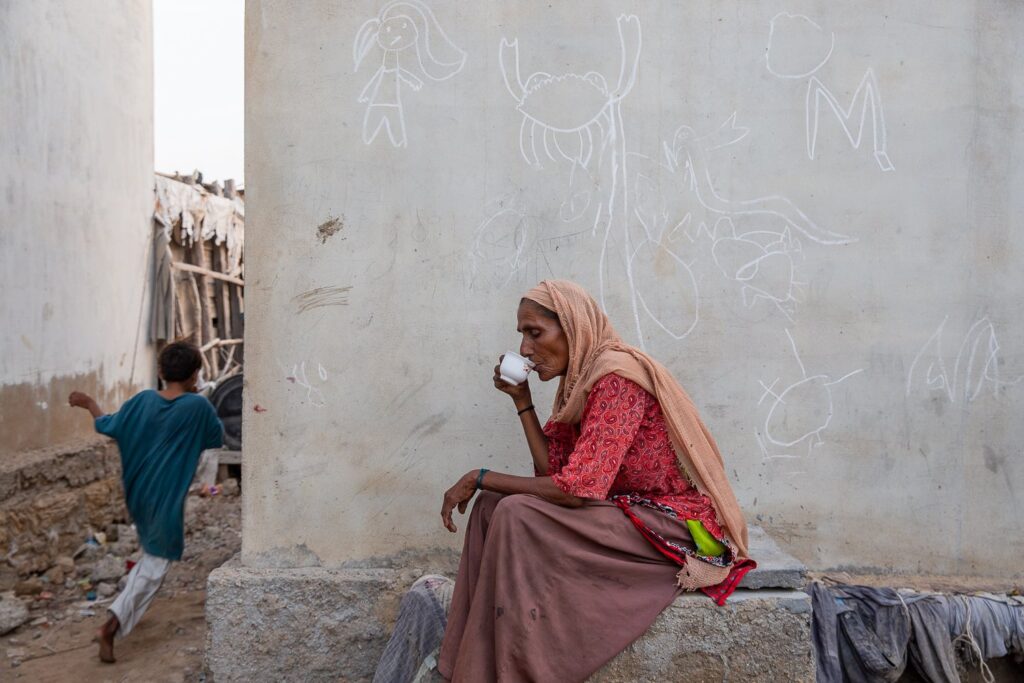
Each morning at first light, hundreds of fishers set out for the sea in Rehri Goth, a 400-year-old fishing settlement in Karachi. In a sea of men, Hakku stands out. She is the only woman in the community of about 43,000 who fishes—as far as she knows—and certainly the only woman her age, with deep wrinkles and skin weathered by years in the sun.
Hakku wakes before sunrise, and gets ready for the long day ahead, timing herself to the muezzin’s call to prayer. She packs all her equipment—rope, fishing nets, sinker weights, bait, water and biscuits—and heads to the harbour. Balancing a small boat made of thermocol, or polystyrene, over her head, light as a pitcher of water, she arrives as early as she can to give her an edge over the others. Typically, one or both of her youngest sons will join her. If they have to go further out to sea they hop on to a larger boat with their own smaller boats, get dropped off in the water, and picked up again later that day. Each time Hakku does this, she pays 500 rupees ($1.80) for fuel.
In the summer months, Hakku heads to the tidal creek waters where the mangrove forests are. She’ll attach small pieces of meat—usually chicken feet—to a rope, drop it in the water, and wait for the crabs to take the bait. Sometimes, she’ll also catch shrimp and smaller fish. In winter, she heads out to sea to catch “the bigger fish”. Two or three times a week, she’ll cut cooking firewood for the house, taking only the brittle branches of the mangroves. “We never cut the ‘wet’ part,” Hakku says. “We are the custodians of the mangroves, we care for them.”
In the afternoon, when the tide recedes, Hakku makes her passage back. She and her sons will head towards the open fish market, a 10-minute walk from home, to sell the day’s catch to a small vendor. After she’s been paid, Hakku walks to the store next to her house to buy the daily groceries. As her daughter prepares lunch, Hakku tends to her equipment, rubbing salt on the bait to prevent it from rotting. This has been her routine every day for the past 15 years.
This article was published in Al Jazeera on December 7, 2023. Read more here.